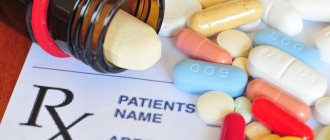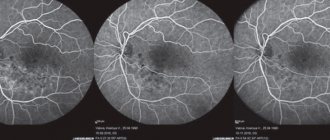Depression is one of the most common diseases. In terms of prevalence, it is second only to cardiovascular diseases. And of all those suffering from depression, no more than 20% seek qualified help.
In this article we will tell you about all the drugs used to treat depression.
All medications with antidepressant effects can be divided into several groups:
- Antidepressants.
- Normotimic drugs.
- Neuroleptics.
- Tranquilizers.
- Nootropics and metabolic agents.
- Herbal remedies.
- Amino acids.
- Psychostimulants.
Normotimic drugs
Medicines in this group have an antidepressant effect only in cases where the depressive state is caused by chronic affective diseases, such as bipolar affective disorder (BD, manic-depressive psychosis), cyclothymia, dysthymia, schizoaffective disorder. Most commonly used medications:
- Carbamazepine (finlepsin)
- Depakine chrono
- Lamotrigine (Lamictal)
- Lithium carbonate
Is it possible to get rid of depression once and for all?
Is it possible to cure anxiety-depressive disorder? It is impossible to answer this question unequivocally in the affirmative. The disease can progress in different ways and have many concomitant diseases of varying severity. Each individual case should be considered individually. In most cases, depressive disorder can be treated, but the risk that the disease will return or remain permanently cannot be ruled out. It is very important to monitor any changes and, if necessary and if there is a visible deterioration in the condition, immediately contact a psychotherapist.
Following your doctor's recommendations and taking preventive measures will help you avoid relapse. You need to get into the habit of doing sports, physical education, or at least gymnastics in the morning. Remember that no one will take care of you except you. Forget about smoking and alcohol, bad habits only provoke the development of depression. It is also important to maintain a sleep schedule; sleep less than eight hours leads to negative processes in the central nervous system and has an undesirable effect on the psyche. Avoid stress as much as possible.
Neuroleptics
Despite the fact that most antipsychotic drugs depress the nervous system, among them there are drugs with antidepressant effects:
- Flupenthixol (fluanxol).
It has an antidepressant effect only when administered in small doses (less than 2 mg per day).
- Aripiprazole.
Effective for depression in bipolar affective disorder and schizitypal disorders.
- Levomepromazine (tizercin).
Prescribed for endogenous depression accompanied by insomnia.
Life in the “serotonin pit”
An alternative to the monoamine theory, which from the point of view of many scientists can no longer be considered basic, is the biopsychosocial model of depression. In accordance with it, the development of the disease is influenced not only by biological, but also by psychological factors.
“A person may experience loss (grief) or severe frustration of their needs (stress). As a result, its neurochemistry also changes,” explains Danina. “But this is the so-called normal “grieving process.” Doctors talk about reactive depression only if, even after months, a person continues to experience the same unpleasant sensations, and over time his condition only gets worse.”
In some people, however, the functional characteristics of their neurons make them more susceptible to depression. Such patients do not require external circumstances to “start” the process. And their depression is not reactive, “endogenous” in nature.
In both cases, as a medical treatment, in addition to psychotherapy, doctors prescribe antidepressants, that is, drugs that can affect neurotransmitters in the brain.
There are five classes in total. Each of which affects the brain in its own way.
1. Selective serotonin reuptake inhibitors (SSRIs).
SSRI drugs increase serotonin levels. Which helps to more accurately regulate mood and gradually overcome moderate and severe depression. These drugs do their job by preventing neurons from taking up serotonin from the synaptic cleft between neurons. Due to this, neurons are able to exchange information better.
SSRIs have fewer side effects than other classes of antidepressants. For example, in case of overdose, they do not disrupt cardiac conduction and do not lead to seizures.
However, there are still side effects and they are quite serious - from increased suicidal thoughts to sexual dysfunction, drowsiness, dry mouth, dizziness and headaches.
In addition, all drugs that increase serotonin levels in the brain can cause serotonin syndrome, a situation where there is too much of the neurotransmitter.
Serotonin and signal transmission along nerve cells.
With serotonin syndrome, a person becomes overexcited, restless, suffers from sweating and increased heart rate. This is why being treated simultaneously with two antidepressants that increase serotonin levels is dangerous to life and health.
2. Selective serotonin and norepinephrine reuptake inhibitors (SNRIs).
SNRIs work in much the same way as SSRIs, but with one difference. Medicines “prohibit” neurons from absorbing not only serotonin, but also norepinephrine, a neurotransmitter that is involved in the regulation of emotions and thought processes.
And since norepinephrine works closely with serotonin and dopamine, SNRIs are believed to increase attention, focus, and improve memory.
The indications and side effects of SNRIs are very similar to SSRIs. Drugs in this class have few advantages over SSRIs, but they are better for some patients.
3. Atypical antidepressants.
This class includes drugs with different principles of action, which have only one thing in common - these drugs are not similar to SSRIs and SNRIs.
Although some drugs in this class also “prohibit” neurons from taking up serotonin, like reuptake inhibitors, some of them can affect receptors for other neurotransmitters. This makes it possible to fine-tune the sensitivity of neurons to one or another substance.
It is worth noting that the components of some atypical antidepressants - for example, bupropion - are indicated in a note to the list of psychotropic substances subject to control on the territory of the Russian Federation. And although this product has been approved by reputable international medical organizations - for example, the American Food and Drug Administration (FDA), it cannot be legally purchased in Russia.
Side effects for this class of drugs vary depending on the specific drug. For example, some atypical antidepressants make you sleepy, while others, on the contrary, invigorate you. To choose the right medicine, the doctor must take into account the specifics of the legislation, individual symptoms and the patient’s health condition.
4. Tricyclic antidepressants (TCAs).
All drugs in this class are thought to increase norepinephrine and serotonin levels in the brain, much in the same way as SNRIs do.
But TCAs have a very important difference - they are able to act on brain receptors that bind to other substances. In case of overdose, this leads to severe side effects - for example, seizures and complete heart block. And although TCAs are quite effective, today they try to use drugs from this group as rarely as possible.
5. Monoamine oxidase inhibitors (MAOIs).
Drugs in this class “turn off” monoamine oxidase, an enzyme that breaks down norepinephrine, serotonin and dopamine in the brain. As a result, neurotransmitters are not destroyed and remain in the synaptic cleft for a long time.
Unfortunately, MAOIs have many side effects, including high blood pressure, weight gain, swelling, sexual dysfunction, and suicidal thoughts. So medications of this class today are used only under strict medical supervision and as a last resort - if other antidepressants have not helped.
Tranquilizers
- Bromodihydrochlorophenylbenzodiazepine (phenazepam).
The drug of choice for neurotic conditions with depression and post-stress conditions. That is, in cases where short-term treatment is required.
- Clonazepam.
Strong anti-anxiety and sedative effect. When taken for a long time it causes dependence.
- Alprazolam.
Prescribed for anxiety and depression. Recommended for short courses (no more than 10 days) due to the risk of developing addiction and dependence.
What is depression?
Don't think it's just a bad mood or apathy.
If you have blues and despondency, this does not mean that there is depression. In fact, this is a disease that is characterized by serious changes in the biochemical processes of the human brain. Signs of the disease may persist for more than two weeks, while ordinary frustration or sadness disappears much sooner. In the absence of timely treatment for severe depression, the condition drags on for years and develops into an intractable chronic form. It often happens that a person does not even realize that he is sick. It is important to understand that treatment of neuroses and depression is necessary, this should be done by a specialist with extensive experience in this field. What is clinical depression , and why does it require treatment? The disease develops due to a disruption in the production of certain neurotransmitters in the brain, which are responsible for receiving positive emotions. The disease makes a person apathetic, he is rarely in a good mood, and most often has a pessimistic attitude.
Nootropics and Metabolic Aids
The remedies in this group help to get out of a depressive state that has developed against the background of stress, overwork, encephalopathy, the consequences of injuries and poisoning. By improving the blood supply to neurons and energy metabolism within cells, they contribute to the activation of cognitive functions and memory. The most effective drugs in this group:
- Phenibut
- Mexidol
- Aminalon (GABA)
- Piracetam (nootropil)
- Picamilon
- Pyriditol (encephabol)
- B vitamins.
How dangerous are antidepressants for the human body?
Are antidepressants dangerous to your health? People are as afraid of these drugs as they are of antibiotics. There are many myths around these medications. How dangerous are antidepressants really? First of all, you should understand that no doctor will prescribe you a potent drug without indications for it.
Modern medicines have a rather gentle effect on the human body, bringing great benefits to patients and bringing them closer to recovery much faster. The drugs affect the production of necessary neurotransmitters and compensate for the lack of serotonin and endorphins. As a result, within a couple of weeks the patient begins to feel many times better than before the start of therapy.
However, the positive effect of the tablets does not occur immediately; over the course of several weeks, the human body adapts, which is why some side effects occur. They often cause patients to stop taking medications because they feel like their condition is only getting worse. However, you should be prepared for the fact that these are not magic pills that will help you get rid of a serious illness overnight. Most medications have a cumulative effect.
A competent specialist knows in what dosages a particular drug should be taken. Most often, the dose is increased gradually, as the body gets used to it, which is why at the beginning of taking it the expected effect will be absent. It is important for patients to stay in touch with their doctor to inform him of any changes. If your health condition worsens, tell your doctor. If you follow the recommendations, the medications will only bring benefits and a significant improvement in your well-being.
Are there non-drug treatments for depression?
In addition to medications, there are many non-drug treatments for depression. These are psychotherapy, biofeedback therapy, diet therapy, physical therapy, exercise therapy, reflexology, light and color therapy, sleep deprivation, etc. Most often, a combination of several methods is used to treat depression. For example: psychotherapy + drug treatment, biofeedback therapy + psychotherapy, medication + diet therapy, etc.
You cannot prescribe or use medications on your own. If you or your loved one is faced with the problem of depression, you need to see a psychiatrist or psychotherapist! Only according to his recommendations can you use drugs. Self-medication is life-threatening!
Types of disorder
With the right methods, medications and treatment plan, the disease can be stopped and cured, regardless of the stage and duration of development. If the disorder is caused by the absence or deficiency of certain vitamins and substances in the body, the person’s condition will normalize as soon as the balance is restored. When treating endogenous or psychogenic depression, special complex therapy is required. In the first case, the disease is caused by a malfunction of the psyche, in the second – by traumatic events.
For example, an elderly woman can take the death of her husband to heart; the loss of a person with whom she lived hand in hand is very traumatic, which can cause the development of not only neuroses, but also dementia. In this case, doctors advise treating depression in women in a clinic.
Treatment for postpartum depression, which is very important for a young mother, is no less dangerous. During pregnancy and after childbirth, a huge number of changes occur in a woman’s body. Not everyone gets used to the new role right away; some are afraid of the oncoming responsibility; others are not confident in the support of their spouse. The result is mental disorder, panic attacks, unreasonable fears, breakdowns.
Today, specialists quite often treat bipolar depression. This disease is getting younger every year, but it should not be confused with a number of other abnormalities. Bipolar disorder is often confused with increased emotionality. If you feel the symptoms of this disease, call the clinic; today it is possible to both treat depression in a hospital in Moscow and undergo therapy on an outpatient basis.
Do you want to know about the cost of services?
8 call our specialist
How can the doctor help?
There is a huge mistrust of doctors in our country. The rather low level of medicine in the regions, lack of funding, low salaries of doctors, and with it a negligent attitude towards work also have an impact. Of course, there are good and bad doctors and clinics; if you do not trust budget institutions, contact a private center.
If you have symptoms of the disorder, you should immediately contact a psychotherapist. A specialist will be able to quickly recognize the disease, carry out diagnostics and take tests, examine the patient and draw up an individual psychopharmacological treatment plan. Clinical psychologists at our center can also make a diagnosis of depressive disorder. Quite often our patients experience alcoholic depression due to prolonged abuse of alcoholic beverages. “Center for Healthy Youth” has all the capabilities, experience and necessary resources to eliminate all symptoms of the disease and normalize the psycho-emotional state of the patient.
Many people are afraid of psychologists. “Am I crazy?” – can often be heard from patients. However, neuroses and depressive states do not mean that a person is mentally ill, and he will be admitted to a mental hospital and registered. When contacting a private center, people are treated completely anonymously. Even if you go to a public clinic, you will not be registered at the dispensary. Specialists do not have the right to disclose the diagnosis or provide information about the patient’s condition to third parties, since this is a medical confidentiality. A person can go through the treatment process completely calmly. Quite often, an experienced doctor will only need to conduct psychotherapy sessions in order to achieve stable remission. Personal communication with a doctor and following his recommendations is all that is needed for a speedy recovery. You should not prescribe medications yourself, it can end badly.
If you feel increasing symptoms of depression, you should not wait for a miracle and live with it for years, there is a way out, modern techniques and the latest drugs will help you cope with the disease. Doctors will help you regain the joy of life even with chronic pathology.





